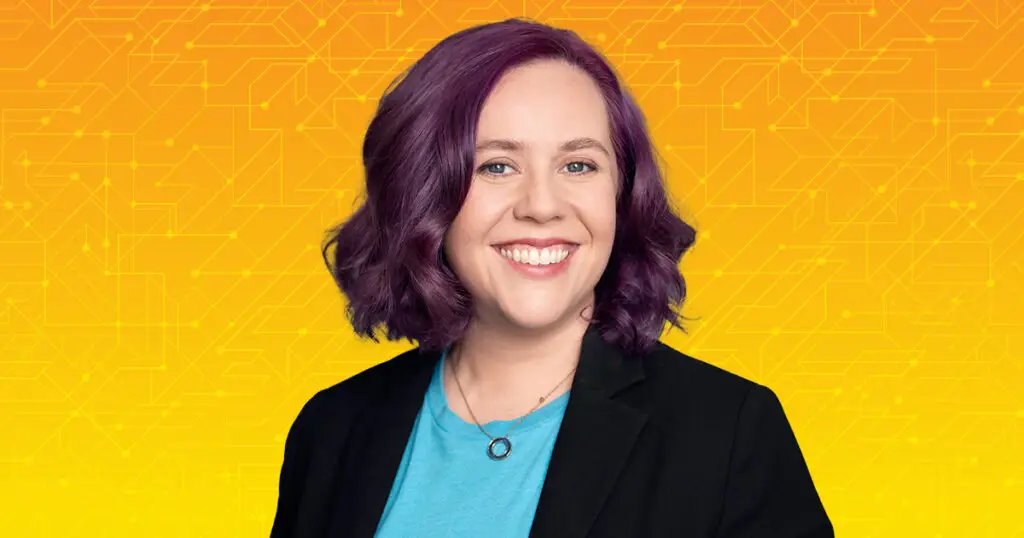By Diana Hughes, VP of Product Innovation and AI
At Age of Learning, we are taking a thoughtful and principled approach to integrating artificial intelligence (AI) into our education technology solutions. Our core philosophy is that AI should be an enhancement and tool to leverage our expertise more effectively – not a replacement for the human educators who are essential to quality learning experiences.
Our commitment to AI integration is grounded in the proven efficacy of our existing personalized learning programs. For years, we have been delivering efficacy-based solutions that dynamically adapt to each student’s unique needs and abilities, resulting in increased engagement and academic outcomes.
Age of Learning’s goal in bringing AI into the mix is not to reinvent the wheel, but to further amplify and scale the instructional approaches we know work so well. By training AI models on the data and expertise behind our effective personalized learning solutions, we can take personalization to new heights, making real-time adjustments that optimize the experience for each individual student.
Human Expertise is Critical
The key is that we are not letting the AI operate autonomously. Instead, our goal is to carefully integrate it as a tool that enhances and empowers our human educators. Teachers work in concert with the AI, using the system’s data-driven insights to inform their instructional decisions and customize supplemental activities.
In this way, we can maintain the high-touch, adaptive learning experience that has been the hallmark of our programs, while leveraging technology to deliver it at a scale that was not previously possible. Our focus remains squarely on driving continued improvements in student engagement, learning, and outcomes – with AI serving as a force multiplier for our proven instructional expertise.
Amplifying Our Proven Approaches
Personalizing the learning experience for each student has long been a core part of our mission. Our adaptive, research-proven programs already tailor instruction to meet students at their individual levels and align with their unique learning needs and interests.
But we see opportunities to take this personalization even further through the integration of AI.
For example, let us consider the case of a 4th grader who is demonstrating proficiency more aligned with 2nd grade objectives. Our goal is not just to seamlessly provide that level of content and scaffolding, but to tailor the experience in a way that truly meets the student’s unique needs.
Through the power of our trained AI models, we will be able to conduct an in-depth misconception analysis to uncover the specific knowledge gaps or learning barriers this student is facing. We will also be able to factor in the student’s first language and cultural background to ensure the remedial instruction is culturally relevant and resonates on a deeper level.
The AI will then be able to make granular, real-time adjustments to the pacing, modality, and content – not just delivering 2nd grade material, but adapting it in a way that optimizes the learning experience for this particular 4th grader. This level of hyper-personalization would not be impossible to achieve without the data-driven insights and rapid adaptability that AI provides.
And importantly, the data we use to train our AI models comes from programs that have been thoroughly tested for efficacy across diverse populations and contexts. This ensures we are not inadvertently introducing biases, but rather leveraging technology to enhance and scale the personalized, research-based instruction that has always been central to our approach. It is all about using technology to amplify our proven ability to meet learners where they are and guide them toward success.
Empowering Educators
We also see opportunities for AI to support and empower educators directly. Through the trained AI, our programs will be able to interpret student performance data and identify areas where individual learners may need additional reinforcement or remediation.
But rather than just presenting the teacher with a pre-determined set of remedial topics, we are actively partnering with them to create customized instructional resources, that rely on their pedagogical expertise and knowledge about their students to determine the most impactful way to address those learning gaps. AI acts as an assistant, enhancing the teacher’s ability to meet each student’s needs. It is a true collaboration, with technology augmenting rather than replacing the human elements of great teaching.
Ultimately, our approach to AI is about elevating the learning experience for all students, not replacing the fundamental role of great teaching. By thoughtfully integrating AI into our programs, we can scale our adaptive, research-backed instruction in ways that were previously unattainable.
